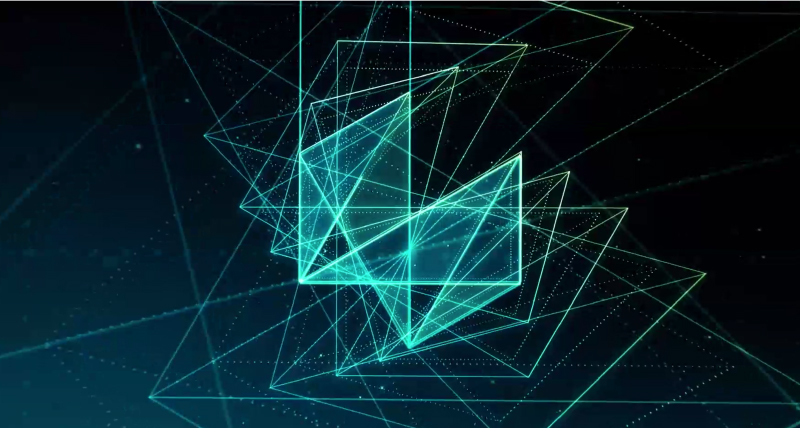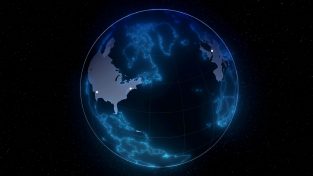In this episode of HxGN Radio, we’ll be speaking with Erik Josefsson, CEO of R-evolution – a new Hexagon business venture focused on a sustainable future. As we celebrate World Environment Day, let’s learn more about how they are taking action and leading business opportunities that will benefit our planet.
BK: Hello, everyone, and thanks for tuning into “R-evolution: How industry can save the world” on HxGN Radio. I’m your host, Beth, and today I’ll be speaking with Erik Josefsson, CEO of R-evolution, a new Hexagon business venture focused on a sustainable future. As we celebrate World Environment Day, let’s learn more about R-evolution and how they’re leading business opportunities that will benefit our planet.
But first, let’s meet the guest of honour today. So, Erik, prior to joining the Hexagon family, was head of Advanced Industries at Ericsson, where he led the delivery of global industrial IoT and 5G solutions for the manufacturing and process industries. Erik has a passion for global tech. He has worked and studied in Sweden, Malaysia, China, and the USA and has experience driving many smart initiatives, like 5G factories, connected cars, and smart, sustainable cities.
Erik, that is quite the resume. So, thank you for joining us today and welcome.
EJ: Great to be here. Thanks.
BK: Well, we are excited about this initiative and everything Hexagon has to offer when it comes to sustainable initiatives moving forward. So, let’s jump right into the conversation. You are the new CEO of R-evolution. So tell us about the origin of R-evolution and its journey from ideation to being established.
EJ: We have to take a step back and look at what is really happening across our world and the status of this planet. We as human beings have scaled, but we haven’t scaled sustainable. In the last 100 years, we have seen exponential growth in population and in GDP growth, which is amazing. But, we have taken that to a price. If you look at how long Earth has existed, it is around 4.3 billion years, and if we weave that into one single year, 365 days, we as human beings have only existed 23 minutes of that year. And during those 23 minutes, we have already consumed 30% of all available resources on this planet, 15% of all fish stocks in the oceans, half of all plant species are now destroyed, 80% of all marine and land mammal doesn’t exist. So, we have scale, but we haven’t scaled sustainable. That’s the underlying situation of where we stand today.
R-evolution is a new business venture from Hexagon, where we believe that this is not just a challenge; this is also an opportunity. It will be one of the biggest business opportunities in the 21st century to actually save this planet. And it is not just Hexagon; it is the whole earth, and all populations need to come together. And we thought about how do we do with this? You can do it by nonprofit health organisations, and there is a lot of great work there. We as businesses need to get moving and we need to act fast. And our approach in Hexagon believe that it is better to start from a real business perspective, find the real business opportunities, invest, and accelerate.
R-evolution stands for “our evolution” or “our revolution.” Therefore, it is not just me, it’s not just Hexagon, it is where we are inviting a lot of partners coming together to both invest and apply technology in the new growing green tech arena to save our planet. But in summary, it all boils down to that we have gone through the industrial revolution that has helped us to scale, but not sustainable. We believe that the next chapter will be all about combining the technology that we have in Hexagon with full autonomy and with green tech business opportunities. And we will be the spearhead business venture to make that happen.
BK: Erik, you know, you talk about these numbers, and honestly, they can be frightening and just the whole concept of us as a human species only existing 23 minutes of a year’s worth of existence of the globe and to think about how wonderful technology has helped us in the industrial revolution, but then also how we are just not moving forward in a sustainable way. R-evolution has such a monumental role potentially in creating sustainability, and I think that it’s a wonderful venture, also encouraging the business side of it as well. And R-evolution was created to reinvent and empower how industry addresses complex environmental risks. So, tell us a little bit about how R-evolution or you as a company are going to help bring the change that we’re talking about here.
EJ: We will do that in two ways. One is that we invest and apply our technology, so we run profit-driven, sustainable investments where we can apply Hexagon technology. We usually define that into a “REVO” equation, and that stands for reality, expertise, value, and outcome. We looked at opportunities to save this planet from a reality perspective. What are the direct impact that we can do right now to save this planet? Apply our experience from Hexagon. We have 22,000 employees. We have amazing technology from a fleet of airborne sensors to land-based sensors, people that’s based in software, and that asset is really unique and where we can apply that to climate-saving opportunities. That’s our experience. Anything that we do has to generate value, and value is easily mastered from a profitability. So, can we drive profit from those investments? That’s where we run; that’s how we generate the outcome. So that is “REVO”, number one, investments.
Second area is that we are, with our work in R-evolution, accelerating an ecosystem of partners and a Hexagon solution to be addressed in a new, fast growing green tech arena. A lot of money is being invested, but there is not that much really great technology that has been applied yet. And we sit on a goldmine within Hexagon, with the best possible software solutions and autonomous assets. So, this is where and how we come in and make a big difference: investment and accelerate the technology.
BK: And what Hexagon tech, if you could speak to any that may be useful, is that where you guys are in the process of developing the tech that will then fit into these two ways that you’re going to bring about change?
EJ: We are defining our investment portfolio into three waves. And that is because I’m a surfer, too. I like to surf, and I can see that we are currently on a ride right now on renewable energy. And we believe that 75% of all energy will be produced through renewable, and that’s wind and solar. Therefore, we are investing in our own PV plant portfolio within Hexagon R-evolution, where we then can apply our Hexagon technology from planning, design, operate, or manufacture, build, operate, and optimise. Technology can be everything from our HXDR platform, which we are using our airborne fleet of sensors to 3D visualise an area. I can go down to nearly 1.5 centimetres accuracy and see exactly the performance of certain sites. We also have another solution. I can continue for a long time, Beth, here.
BK: I bet you can. I mean, it is Hexagon, after all, right? We have all the technology. Thank you for an example.
EJ: Yeah. We create the digital thread, which no other company has so well positioned to do that from all the way from design, build, operate, and optimise. Usually other companies are doing certain pieces. We can actually do the whole thread, which is really unique and amazing.
BK: Yes. Thank you so much, Erik. That was just kind of an extra added bonus question there for our listeners. But tell me more about projects and/or partnerships that are on the horizon for R-evolution.
EJ: Yeah, I touched a little bit about the different waves, so, let me clarify that. The first wave is now renewable energy, and that’s where we’re building up our portfolio on solar. There is also great work already existing in Hexagon in wind. With our design and engineering software, we are touching 90% of all wind turbines, motors in the world. So we’re already there on the renewable energy, and we are helping out accelerated and investing in our own PV plants. The second wave is in hydrogen, the new level of energy that will be used instead of fossil fuel. Also, storage to handle like batteries, he next level of batteries. And the third wave that is about to rise, we are not there yet, is in the next level of agriculture, a plant-based food. We are evaluating a lot of new, exciting start-ups that potentially can complement our Hexagon portfolio, but also ecosystem of partners. That’s the three ways. I touched only the first wave in the other question.
BK: No. Thank you. Very, very clear. And I love that you’re speaking in terms of waves, because as you mentioned earlier, surfing and you are passionate about sustainability and changing our world for the better. So, where does the passion come from? And you alluded to it a little bit, but how did it begin?
EJ: Yeah. If you’re a surfer, then you are directly connected to the greatest asset that we have, our oceans. And when I was in Bali and surfed there came so much stress. And I can experience that in nearly all the different oceans that I been surfing into, that we have a pollution problem, and we need to act. It’s estimated that 1.56 billion face masks now during COVID has ended up in the oceans during 2020. And that’s just face masks. If you look at the fish nets, it’s around 40% of all the plastic in the oceans are fish nets that have been dumped. So we are born in an era of use and trash, but our earth is not that way. We only have one planet, and we need to save it. So, I think it’s not just me. Everyone can connected with this purpose. It’s just that we have different ways that touch us specifically. And for me, since I’m a surfer, it goes directly to the pollution in the ocean.
BK: You know, it’s interesting you mentioned that. I did watch a documentary recently that stated that fish nets are 40% of the trash or the plastic trash in our ocean. And what we don’t think about is the way that we care for our planet, the way that we are—the sustainability part of it. We’re just not sustainable. And it’s really affecting the world that we live in. So, you’re tying into this documentary that I saw, and it really, it feels pressing. Now is the time to start moving forward in the right direction.
So, lastly, if we fast forward five years from now, what do you hope to see in regards to Hexagon and R-evolution’s environmental impact?
EJ: I hope that we are often surf at all these three waves then. We’re not just paddling on the side. We are going all in, not just alone with all our friends and family and different companies and partners across the globe. We’re all going with this purpose and make driving this business to the next level, where Hexagon will be the leading digitalisation partner.
BK: Wow. So much to look forward to. Now, I will say, this is a second bonus question that I’m going to toss in here. But you know, Erik, I am a mom and a relatively new mom. My daughter is 19 months old. And when I look at her future, the world becomes my greatest concern. So, let’s say all myself, my whole family, we all jump in and ride these waves together. How can we, as common civilians and normal people, help on some of these initiatives? Or are there ways—I know Hexagon’s very technologically driven, but that we can also aid in that effort in supporting our environment along with Hexagon.
EJ: I’m joining your team there, Beth. I actually have a two and a half month old baby back home.
BK: Congratulations! Yes.
EJ: So, definitely. If we think big, we can save this planet. We have 30 years until 2050, the year of “too-late.” And we need to start small. If everyone contributes on their end we can make a big difference. I would recommend that if you see trash, you collect it [and]you throw it [away]. You influence the neighbours, the people around you. And also your own investments. Where do you put your money to contribute to a better society and a better environment? So, we’re thinking big, but start small. If we all contribute, we can make a big impact.
BK: For sure. Well, thank you, Erik. I mean, I could go on and on in this conversation, and I think there’s so much more to touch on, and hopefully we’ll get the opportunity to reconnect with you, especially as these initiatives move forward, so that we can see and hear about the progress that Hexagon is making.
But thank you again to Erik Josefsson for joining this episode of HxGN Radio. Please be sure to cheque out all of our latest episodes at HxGNSpotlight.com or on Apple podcast and Spotify. Thanks for tuning in.
To learn more about Erik Josefsson and R-evolution, please visit www.r-evolution.com.
















